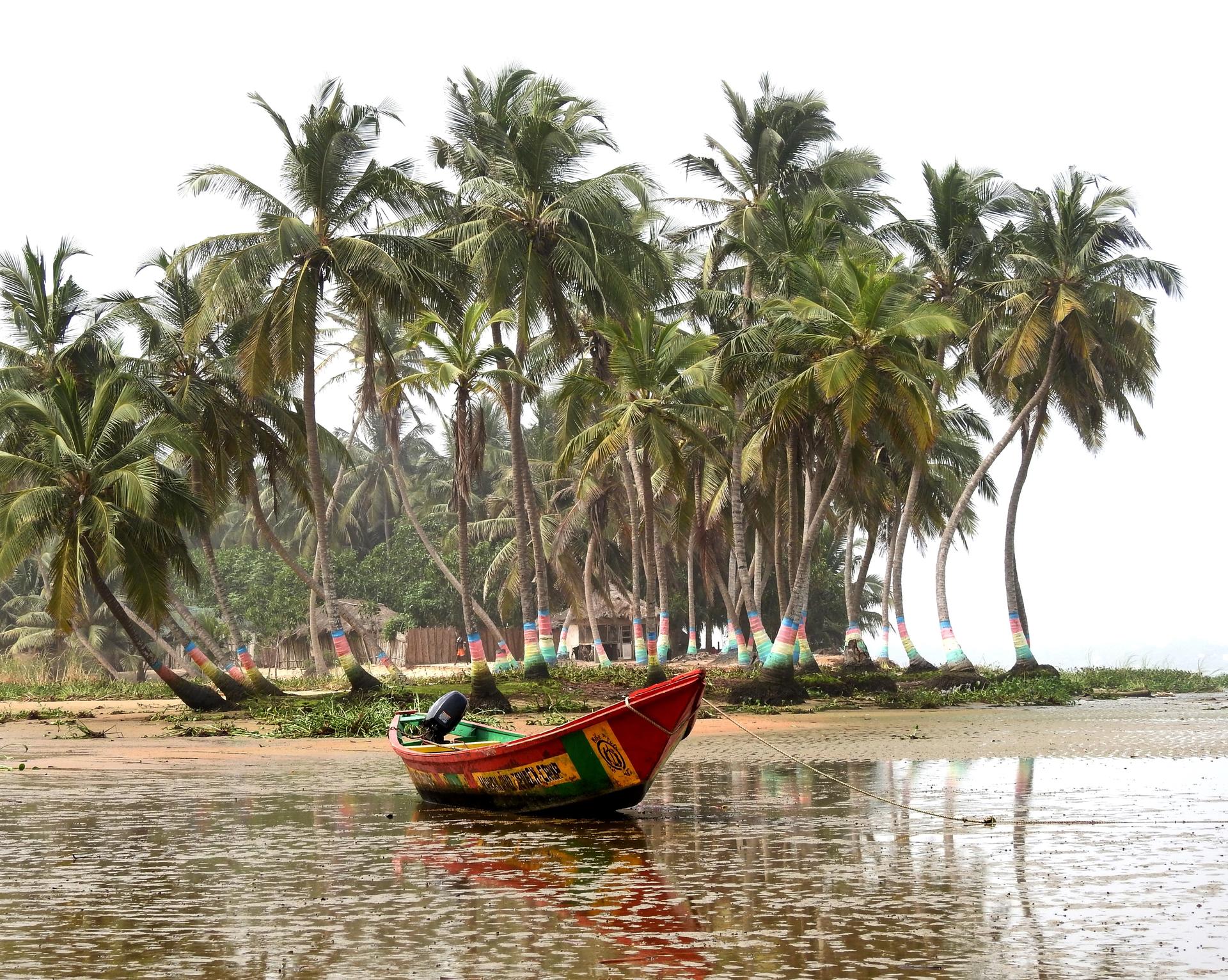Ghana🇬🇭

Ghana is a West African country known for its beautiful natural landscapes, diverse culture and rich history. Surrounded by Burkina Faso, Côte d'Ivoire, and Togo, it has a pleasant relationship with its neighbouring countries enabling cross-border trade and tourism. Some famous tourist destinations include the Kakum National Park, Lake Volta and the Cape Coast Castle. The diverse Ghanaian culture is expressed in its colourful festivals such as the 'Homowo' and 'Fetu Afahye'. The country's interesting blend of modernity and tradition make Ghana a unique and recommended travel destination.
⚠️Things you should avoid⚠️
- Avoid walking alone at night, especially in isolated areas.
- Avoid discussing sensitive topics such as homosexuality or politics.
- Avoid going into the wilderness without a reliable guide.
- Avoid eating food from unsanitary food stalls.
- Avoid swimming in stagnant or non-moving water bodies due to risk of waterborne diseases.
- Avoid drinking unfiltered tap water in rural areas.
- Avoid showing signs of wealth as it may attract thieves.
- Avoid accepting unsolicited help from strangers.
- Avoid rough parts of cities like Nima in Accra.
- Avoid breaking local customs and traditions.
Overall
6
Crime 🔫
6
Although Ghana is relatively safe, there has been an increase in crime rates in recent years. Cyber fraud and petty thefts are the most common crimes. Accra and Kumasi are cities where crime is relatively high and travellers are advised to be cautious.
Terrorism 💣
7
The risk of terrorism in Ghana is relatively low compared to other West African countries. However, there have been sporadic cases of religious tension and threats from extremist groups from neighbouring countries. No major incidents have been reported recently.
War ⚔️
9
Ghana is a stable and peaceful nation. Despite some occasional internal disputes and tensions, no major civil wars or conflicts have occurred in recent history.
Natural Disasters 🌊
7
Ghana is prone to specific natural disasters such as floods, especially in the northern regions during rainy seasons. Severe droughts also affect agricultural activities periodically. However, major disasters yielding catastrophic results are rare.
Medical Care 🏥
6
Healthcare standards in Ghana are moderate with availability of both public and private healthcare institutions. However, advanced or emergency medical care might not be available, especially in rural areas.
Tap Water Quality 💧
5
Tap water in urban areas is generally safe to drink, but it is advisable to drink filtered or boiled water. In rural areas, access to clean water might be limited.
Disease Burden 🤒
6
Malaria, Cholera and Yellow Fever are common diseases in Ghana. However, healthcare services and preventive measures have helped in controlling these diseases to a large extent.
Corruption 💸
5
Ghana struggles with corruption, particularly within government institutions and law enforcement, but it's relatively better compared to other West African nations. The country is taking steps towards dealing with this persisting issue.
Safety for Women ♀️
7
While Ghana is generally safe for women travelers, it is recommended to take precautions, especially at night. Instances of harassment and physical assault are relatively low but are not unheard of.
Safety for Queer People 👬
4
LGBTQ+ rights are severely restricted in Ghana with issues of discrimination and physical violence. Public display of same-sex relationships can risk legal punishment.
Censorship 📺
8
Ghana has a robust and free media landscape. Although cases of government criticism being censored have occurred, freedom of speech is widely upheld.
Public Transportation 🚌
7
Public transportation in Ghana is functional and affordable but may lack comfort and punctuality. Road safety is a pressing issue with recurring traffic accidents documented in recent years.
Other useful information
🔒 How safe is it?
Ghana is a relatively safe destination for tourists. However, one needs to be aware of various issues such as petty crime, road safety, and health challenges. Always follow local laws and customs and stay cautious especially in crowded and poorly lit areas.
🏰 Embassies in this Country
Ghana hosts many international embassies including the U.S., U.K., Australia, Canada, and Germany. Most embassies are located in the capital Accra.
💉 Recommended Vaccinations
Recommended vaccinations for Ghana include Hepatitis A, Typhoid, Meningitis, Yellow Fever, and Malaria, as well as routine vaccines such as Chickenpox, Influenza, and Measles.
🐍 Dangerous Animals
Ghana's wildlife includes potentially dangerous animals such as crocodiles, antelopes, snakes, and various species of monkeys. Tourists are advised to avoid approaching wildlife, especially without a guide.
🛂 Visa Requirements
Most tourists require a visa to enter Ghana. Visa on Arrival service is available for certain nationalities.
💲 Currency
The currency of Ghana is the Ghanaian cedi (GHS). ATMs are widely available for cash withdrawal and money can be exchanged at banks, forex bureaus, and some hotels.
💳 Credit Card Acceptance
Credit cards are widely accepted at hotels, restaurants and shops in Ghana's major cities. However, it's recommended to carry cash when travelling to rural areas.
🧑🏭 Is it possible to work and travel in this country?
Ghana provides rich opportunities for work and travel especially in areas of teaching, tourism, agriculture and NGOs. However, it's important to secure necessary work permits and visas.
💵 Cost of Travel and Living
The cost of living in Ghana is relatively low compared to Western countries. Food, accommodation and transportation are fairly affordable but prices can be higher in tourist hot spots and big cities.